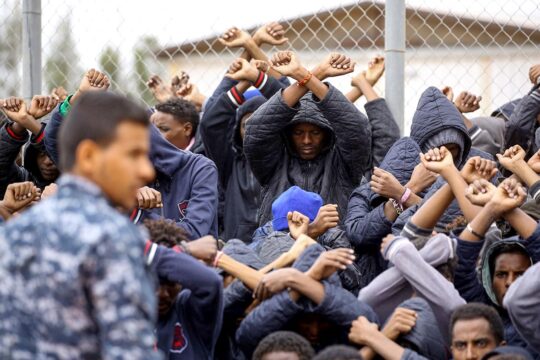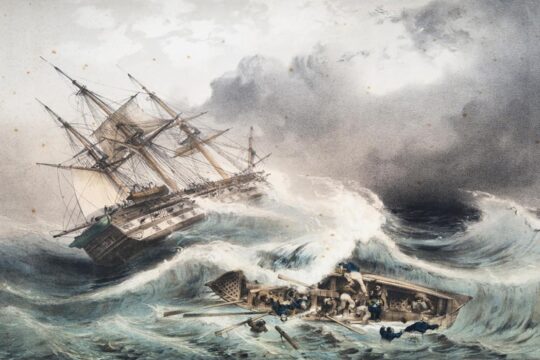Prosecutors at the International Criminal Court will probe the trafficking of migrants out of Libya to see if there is evidence of war crimes, the chief prosecutor told AFP Tuesday.
With the situation in Libya "deteriorating," Fatou Bensouda said "my office is planning to make Libya a priority in investigations" in the coming year.
"One of the areas I intend to look into is the issue of the migrants, and the fact that we see hundreds of thousands of migrants being trafficked across from Libya, coming into Europe," she said.
She was speaking in an interview with AFP in the ICC's new permanent home on the outskirts of The Hague, just as Italy was on the verge of a record number of migrant arrivals for the year.
Asked if such trafficking could be considered "a crime against humanity," Bensouda replied: "It could be, depending on what evidence we find."
"We are still continuing with our investigations in Libya. We are receiving a lot of information with regards to the crimes that are being committed."
- 'Women, children bear brunt of crimes' -
Italian officials said on Tuesday at least eight people had died and an unknown number were missing in a new series of boat disasters in the Mediterranean.
Some 1,400 people had been saved in a dozen separate operations between Monday evening and Tuesday afternoon, the Italian coastguard said.
The rescues will take the number of migrants to have arrived in Italy by sea this year to almost 170,000, just short of the previous record set in 2014.
"The crimes are just many. And unfortunately it is the civilians... the women and children who are bearing the brunt of those crimes," Bensouda said.
Although Libya is not a party to the Rome Statute which underpins the ICC, the UN Security Council unanimously mandated the tribunal to investigate abuses in the country in February 2011.
It was then still under the rule of longtime leader Moamer Kadhafi, who was killed months later by rebels in a NATO-backed uprising.
An arrest warrant for alleged crimes against humanity is still outstanding for his son, Seif al-Islam, said to be behind bars in Zintan, a town southwest of Tripoli that opposes the unity government based in the capital.
The new unity government in Tripoli still faces dogged resistance from jihadist holdouts, who seized on the chaos unleashed since 2011.
Bensouda's attempt to have the ICC warrant served on the battalion commander in charge in Zintan, to compel him to turn over Islam to the court, was Monday turned down by the trial chamber in The Hague.
But she vowed her office would keep up its investigations, and said new arrest warrants could perhaps follow next year.
"So far the judges have decided that we should continue to have contact with the authorities in Libya... we will follow that up and see what we can do. The efforts have to continue."





